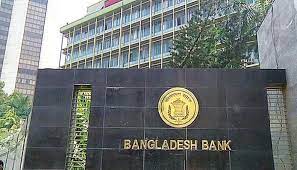
DHAKA, July 18, 2024 (BSS) - Bangladesh Bank (BB) today announced 'cautiously tight' Monetary Policy Statement (MPS) for the first half of the current fiscal year 2024-25 (H1FY25).
As per the MPS for July to December of FY25, BB will maintain a cautiously tight monetary policy stance, keeping the policy (Repo) rate at 8.50 percent, the Standing Deposit Facility (SDF) rate at 7.0 percent, and the Standing Lending Facility (SLF) rate at 10.0 percent unchanged.
Additionally, BB will continue quantitative tightening by streamlining Open Market Operations, ceasing currency swaps among banks and BB, and refraining from creating new money for government spending. However, BB remains prepared to take necessary policy actions if required.
Inflation control remains a top priority for the central bank. BB has maintained a contractionary monetary policy for over a year, significantly increasing the policy rate and avoiding new high-powered money issuance for government spending.
The government supports these efforts by reducing tariffs on selected commodities, expanding social protection schemes like Open Market Sales (OMS), and introducing the Family Card. BB has also instructed banks to maintain minimum cash margins on import L/Cs for essential, high-demand products.
Despite some moderation, Consumer Price Index (CPI) inflation remained above 9 percent throughout H2FY24. However, coordinated policy initiatives and global commodity price temperance are expected to continue reducing CPI inflation in the coming months.
BB aims to bring down inflation around 6.5 percent at the end of FY25.
Since mid-2022, the Taka-Dollar exchange rates have faced depreciation pressures due to external sector challenges. In response, BB has allowed market forces to have greater influence over the exchange rate, simplifying the framework and enhancing transparency.
To further stabilize the exchange rate and move towards a more flexible system, BB introduced a crawling peg system on 8 May 2024. This system links the Taka's value to a currency basket aligned with the Real Effective Exchange Rate (REER) Index, reducing market volatility and narrowing the gap between formal and informal market exchange rates.
Additionally, recent foreign exchange policy liberalization initiatives, such as the Resident Foreign Currency Deposit (RFCD), Non-Resident Foreign Currency Deposit (NFCD), and Offshore Banking Act 2024, are expected to bolster foreign exchange inflows, alleviate exchange rate pressure, and support rebuilding foreign exchange reserves.
As the forex market is showing reasonable stability and transactions are taking place within predefined bands, BB decides to keep the crawling peg mid-rate unchanged at Tk. 117.00 per USD. BB will also enhance import liberalization by removing LC margin requirements for all products except luxury goods like cars, fruits, flowers, cosmetics, and similar items, with margins determined based on bank-customer relationships.
The crawling peg system is a transitional measure towards a fully flexible, market-based exchange rate system, aiming to stabilize exchange rate movements while preparing for broader market liberalization.
Bangladesh faces several immediate macroeconomic issues that threaten its economic stability and growth. These challenges arise from domestic and international factors, creating a complex policy environment. Persistently high inflation erodes purchasing power and real incomes, exacerbating income inequalities.
Geopolitical tensions, such as the Russia-Ukraine conflict and unrest in the Middle East, disrupt global supply chains and drive up prices for essential commodities like food and energy. BB has adopted a contractionary monetary policy to manage inflation, but balancing this with economic growth remains delicate.
BB will continue providing comprehensive credit support to agriculture and CMSMEs as part of its supply-side intervention policy to enhance production and support employment generation.
The Taka has depreciated significantly due to external sector challenges and high import bills, increasing import costs and risking imported inflation.
The BB has implemented a crawling peg system to stabilize the exchange rate, which has shown initial success but requires continuous monitoring. Potential policy rate cuts by major central banks, like the ECB and US Fed, could provide some relief.
Interventions to stabilize the Taka have depleted foreign exchange reserves, crucial for economic stability and investor confidence.
Remittances from exports and wage earners are vital sources of foreign exchange. Recent policy liberalizations, such as the RFCD, NFCD, and Offshore Banking Act 2024, aim to boost forex inflows and rebuild reserves.
The global economic outlook is positive, but uncertainties persist due to ongoing geopolitical tensions. Policy rate cuts in advanced economies could affect reverse capital flows and exchange rates. Fluctuations in global commodity prices, especially for food and energy, pose risks due to Bangladesh's import dependence. High Non-Performing Loans (NPLs) undermine financial stability and limit credit availability for productive investments. BB is implementing measures to reduce NPLs and improve governance within banks, emphasizing transparency, governance, and operational efficiency.
Bangladesh's near-term macroeconomic challenges include inflation, exchange rate volatility, fiscal constraints, and financial sector stability. Addressing these issues requires a multifaceted approach involving prudent monetary policy, effective fiscal management, and structural reforms. By navigating these challenges carefully, Bangladesh can sustain economic growth and enhance resilience against external shocks.